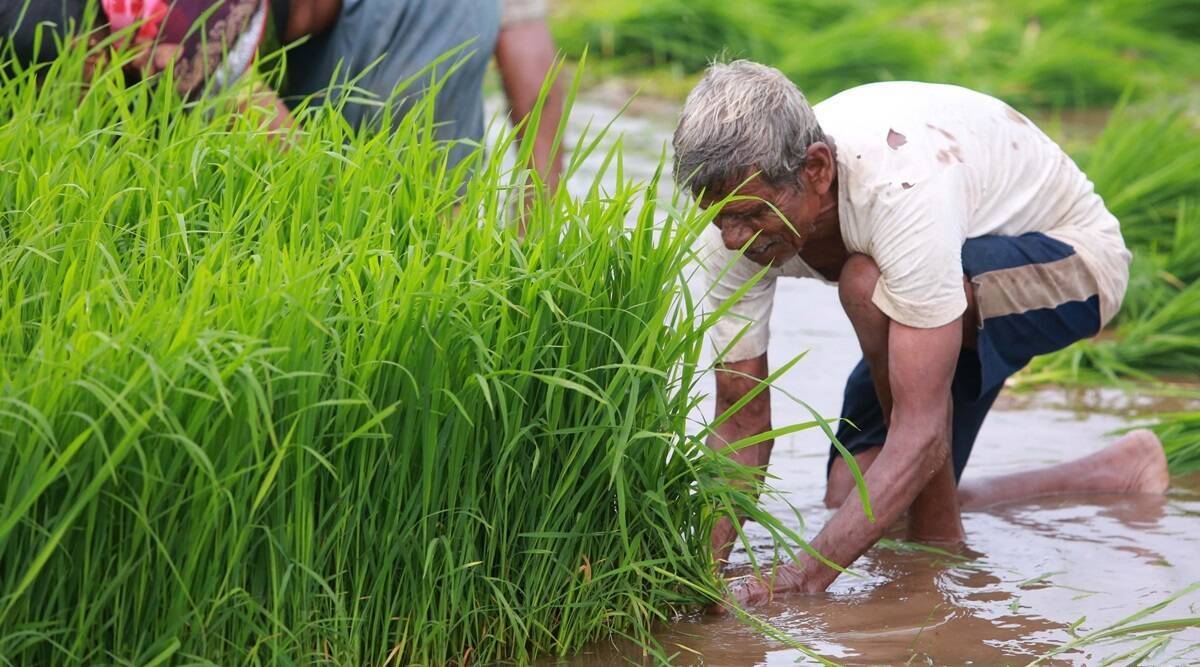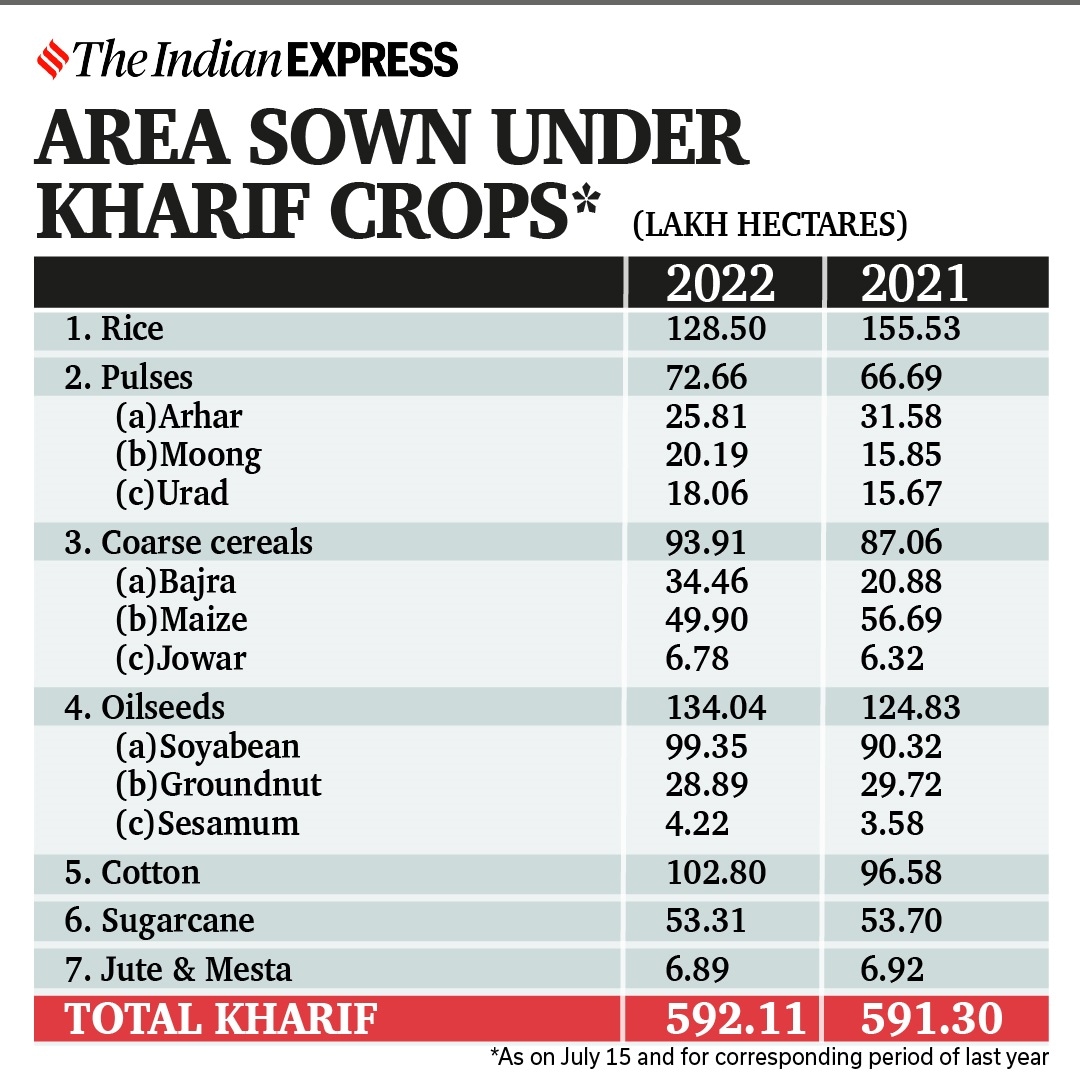 The only crop of concern is rice, where the 128.50 lh area transplanted is 17.4 per cent lower than the 155.53 lh coverage last year at this time. (File)
The only crop of concern is rice, where the 128.50 lh area transplanted is 17.4 per cent lower than the 155.53 lh coverage last year at this time. (File)The southwest monsoon’s revival this month, after a relatively dry June, has led to the area sown under kharif crops exceeding last year’s levels for the first time in the current planting season. The only crop where sowing is significantly lagging behind is rice, where deficient rains in Uttar Pradesh have pulled down acreages under the staple cereal.
According to the Union Agriculture Ministry’s latest compiled data as on July 15, farmers have planted a total area of 592.11 lakh hectares (lh) so far in this kharif season from June. This is more than the 591.30 lh covered during the corresponding period last year.
It also marks a turnaround from the position in the previous weeks, when cumulative sowing was trailing last year’s level by 9.3 per cent on July 8, 5.3 per cent on July 1 and 23.8 per cent on June 24.
The closing of the acreage gap has mainly to do with the monsoon’s revival. All-India rainfall in June was 7.9 per cent below the historical long period average. More important, as many as 24 out of the country’s 36 meteorological subdivisions recorded precipitation shortfall in excess of 10 per cent. The rains have, however, been 41.9 per cent above average in July, with the cumulative surplus from June 1 to July 15 working out to 13.9 per cent.
Subscriber Only Stories

The good spell of rains since the start of the month – especially in much of Peninsular, Central and Western India – have helped boost sowings of cotton, soyabean, sesamum, bajra (pearl-millet), jowar (sorghum), moong (green gram) and urad (black gram). While acreages in some pulses (arhar or pigeon pea), oilseeds (groundnut) and maize are still down, they are likely to be covered in the coming weeks.
The only crop of concern is rice, where the 128.50 lh area transplanted is 17.4 per cent lower than the 155.53 lh coverage last year at this time. Acreages are down particularly in UP (from 35.29 lh to 26.98 lh), Chhattisgarh (19.69 lh to 16.38 lh), Madhya Pradesh (9.63 lh to 7.01 lh), Bihar (8.77 lh to 6.06 lh) and West Bengal (4.68 lh to 3.94 lh). Cumulative monsoon rainfall deficiency till July 15 has been 68.3 per cent in eastern UP, 58.6 per cent in western UP, 42 per cent in Bihar and 45.5 per cent in Gangetic West Bengal.
The data also shows that the area coverage under arhar, most grown kharif pulse, is also down by 18.25 per cent to 25.81 lh as on July 15 during the ongoing kharif season as compared with 31.58 lh during the same period last year. Arhar area is down by 52 per cent in Telangana, 30 per cent in UP, 8.7 per cent in Maharashtra, 18.91 per cent in Karnataka and 33 per cent in Gujarat.
“I don’t see any crisis as of now, but rains are required in the next one week. This is more so for farmers who would already have sown paddy nurseries. The seedlings from those have to be transplanted within 25-30 days of nursery sowing. Beyond that, there is the risk of the nurseries ageing, which will impact crop yields,” A K Singh, director of the Indian Agricultural Research Institute, told The Indian Express.
From availability standpoint, too, there is no crisis for now. At 47.22 million tonnes as on July 1, rice stocks were three-and-a-half times the required minimum buffer of 13.54 million tonnes.
- The Indian Express website has been rated GREEN for its credibility and trustworthiness by Newsguard, a global service that rates news sources for their journalistic standards.

